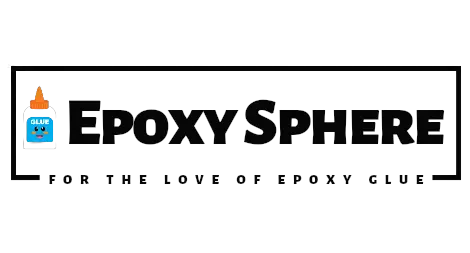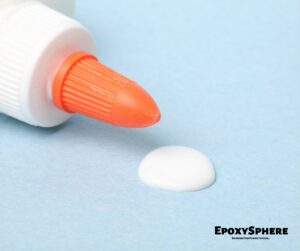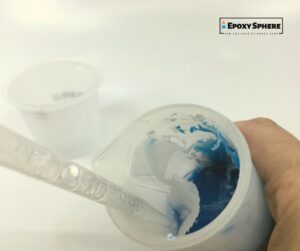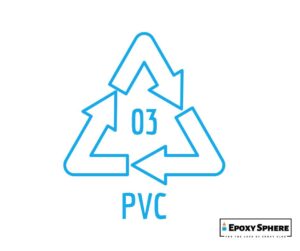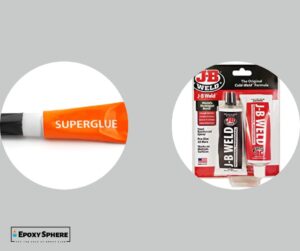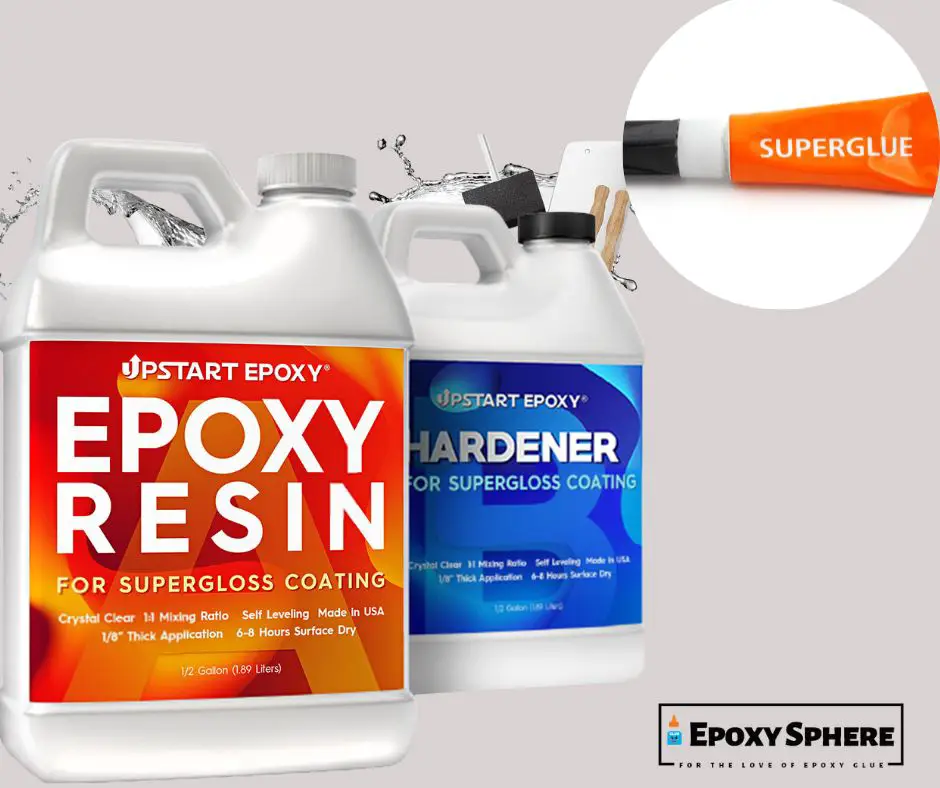
With all the different epoxy products available, it’s easy to get confused about which ones are right for you. But, Will Super Glue Stick to Epoxy? And often, a mix-up can quickly occur. Also, you might even end up mixing two totally different adhesives, thinking it’s okay to do that.
In such situations, you hear questions like will super glue stick to Epoxy? If you expect a simple answer, you are most likely an adhesive novice. We’ll help you make sense of the different Epoxy and the best applications for each one.
The epoxy resin forms an impermeable coating over the surface of whatever you are gluing, so other glues won’t stick to it. However, if it hasn’t cured yet and still has some flexibility, then there might be enough room between layers where your super glue can come in. Super glue only sticks to Epoxy that isn’t fully cured.
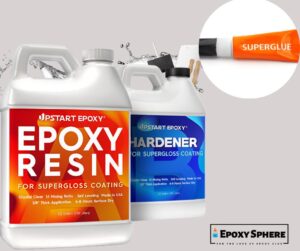
Can You Use Super Glue on Epoxy Resin?
Super glues are a type of cyanoacrylate adhesive that hardens when they come into contact with air. Epoxy resin is a plastic that hardens when it cures. Super glue is a fast-acting adhesive that is used to bond materials together. However, using super glue on cured Epoxy is not advisable.
If you have cured Epoxy on your surface, it might be best to try sanding it off and using another means of softening or removing it. This way, your superglue can reach the surface of your project and bond with it directly.
Is Super Glue the Same As Epoxy Resin?
No, although both are powerful adhesives, they differ. Super glue is a fast-acting adhesive that works on contact. Epoxy resin is a two-part adhesive that requires mixing and has a longer working time than super glue.
The most crucial distinction between epoxy resin and superglue is their working times. Epoxy resin has a longer working time than super glue, so it’s possible to correct mistakes by adding more parts or mixing again.
What’s The Difference between Super Glue and Epoxy?
It’s easy to think both super glue and Epoxy are the same since they are both types of adhesives. However, there are several differences between both products, which give them distinct traits. Here are some of the significant differences between superglue and Epoxy:
Component of each adhesive
One major difference between both is the ingredients that make each cup. Epoxy resin is a two-part adhesive that requires mixing. It comes as one part epoxy resin and the other is a hardener. Upon mixing both, a reaction occurs, which causes the Epoxy to dry and form a bond between whatever it’s stuck on.
Super Glue is a single-component adhesive made from cyanoacrylate, which hardens when it is exposed to air. It requires no mixing with any other component and is ready for use instantly.
The difference in the type of strength provided
While the two adhesives are similar in that they are both liquid and runny, some critical differences in their structural strength make one better than another for different purposes.
The epoxy adhesive has impressive structural strength, which comes with its own advantage. You can rely on it to bond gaps between two parts or fill holes where pieces have broken off. Also, its structural strength means it’s great for projects where you have resistance from any angle.
In terms of structural strength, superglue has a significantly lower shear strength. However, it compensates for this by requiring lesser curing time. This means you can apply super glue and expect it to cure almost immediately without waiting hours for it to dry entirely like Epoxy.
Manner of use
Epoxy requires mixing the components with an applicator, like a stir stick or small spatula. This can be more time-consuming and messy than simply applying some drops of superglue onto the surface of each object you want to be glued together.
Epoxy is often used in various industrial settings, such as building construction, metal casting, and automotive repair shops. Not just because of its durability and high shear strength but because cured Epoxy can be sanded to achieve a smooth finish and coated with paint. Super glue is preferred for less demanding tasks and small-scale artwork.
Super Glue vs. Epoxy; Which Is Better?
Super glue is a very strong adhesive, and it’s usually the first product you think of when you need to adhere two objects together. Similarly, Epoxy is even stronger than superglue and comes in handy in certain situations.
One which is best comes down to personal preference, the type of material you want to use your adhesives on, and the level of strength you will require. However, note that Epoxy takes longer to harden than super glue, which can be an advantage if you don’t want your project to be undone after a few uses.
A more significant disadvantage is that Epoxy is more expensive than superglue. These factors make using Epoxy less appealing in most situations where speed and simplicity are important factors. On the other hand, you can enjoy fast results by using super glue on your project.
Can You Glue Epoxy to Epoxy?
It is possible to glue Epoxy to Epoxy, but you have to be very careful. But then again, different individuals have different experiences doing this. Some have suggested that gluing Epoxy over Epoxy can help you form a powerful bond that will last for years and years.
However, when mixing different brands or types of epoxies together, some compatibility problems may cause your project not to hold together as well as it should or at all. Put this into consideration before gluing Epoxy to Epoxy.
Can You Use Gorilla Glue on Epoxy Resin?
If you want to use Gorilla Glue on epoxy resin, don’t. While this may seem like the perfect solution for your project, we do not recommend the adhesive for use with epoxy resin. The problem is that Gorilla Glue will cause the epoxy resin to swell, crack, or soften. The best thing you can do is leave it alone and find another way to hold your project together.
Conclusion
There are many benefits to using Epoxy or super glue. Both are strong adhesives that can be used on various surfaces and materials, but they have some key differences. Epoxies cure over time at room temperature, while super glues set quickly when exposed to moisture in the air. That said, you can carefully mix both adhesives with helping you create an even stronger bond. However, this requires careful research to ensure you don’t end up with a poorly glued project.

Hi, This is John Davis. After years of working in the construction industry, I decided to create a website that would provide people with information about glue and its exceptional uses. I hope You find it useful
